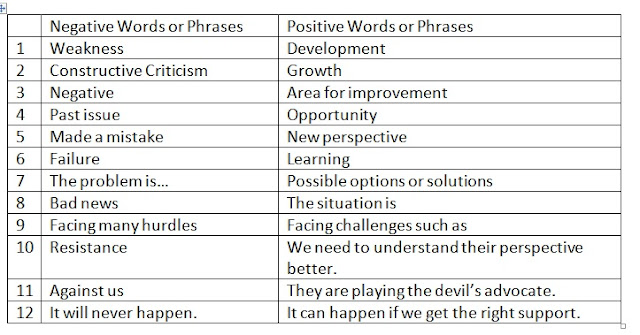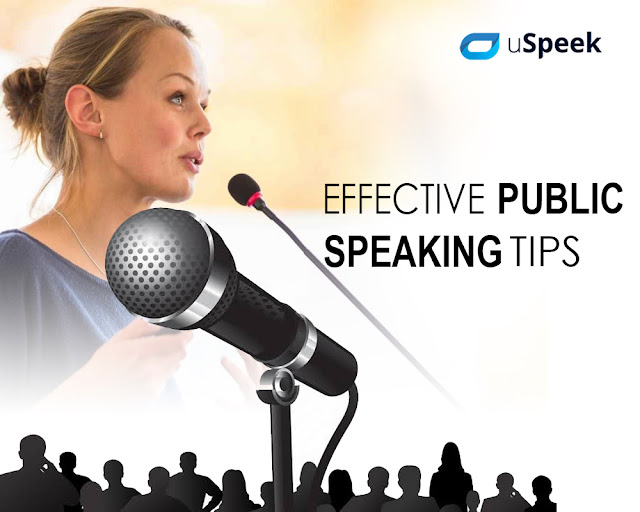What if I
were to tell you that the most important skill that is getting tested when you
appear for an interview is your communication skill? Yes, that is a fact. One
of the top 3 reasons why interviewees get rejected is lack of good communication skills.
What is good communication?
“Good communication is just
as stimulating as black coffee, and just as hard to sleep after.”
Anne Morrow Lindbergh
What makes for good communication skills?
According
to Dr. Albert Mehrabian, Psychology Professor at University of California,
only 7% of communication occurs through the spoken word, 38%
takes place through tone and voice and the remaining 55% through
body language.
Body
Language:
Research shows that
65% of candidates that have stronger body language and interpersonal skills get
the job even if they are less qualified. There are several parts to Body
Language: Posture, Hands, Eye Contact, and Facial Expressions.
Here are examples of
negative and positive body language when you are seated. This could be during
an interview or a meeting.
1. Shaking your foot seated while smiling.
The
shaking foot does not match the smile and confident body posture. This is
called a body leakage. It confuses the listener and demonstrates how you truly
feel, i.e. nervous and less confident! So, avoid shaking your leg.
2. Crossed legs seated in a chair.
Crossed
legs create a barrier between him and the other person. This makes our
candidate look apprehensive and unsure of herself. Do not cross your legs.
3. Clasped hands. Crossed your arms.
Clasped hands
Crossed
arms
Crossed
arms and clasped hands can be seen in two ways: aggressive and closed or
defensive and less confident. Either way, they are not positive.
How should your hands be in an Interview?
Open
hands and open palms.
4. Fidgeting by rubbing your nose frequently, moving
thumbs forwards and backwards. Playing with your hair, ring, paper or mobile.
You
will appear shaky and anxious which hurts your impact. Eliminate nervous
habits.
5. Moving around frequently in a chair.
The
person is shifting their weight from side to side which makes them look
apprehensive and unsure of their words. Keep your weight stationary.
Let’s
now look at your face.
6. Looking away and not maintaining eye contact.
Looking
away and not maintaining eye contact in an interview, makes the person look
disinterested in what the other person is saying. Keep frequent and consistent
eye contact 75-80% of the time.
7. Tilting head one side or other.
When you tilt your head from one side to the other in an interview, the
listener thinks you are reflecting and not sure of what you are saying. Keep
your head in the center.
8. Facial expression which is blank.
A
blank expression makes you seem not engaged in the interview. You look
physically present and mentally checked out.
9. Facial expression of disgust and then angry.
Facial
emotion is important. Small facial expressions are called Micro
Expressions. Even if they are for a
second, the other person catches it or picks up on a feeling. If you are
demonstrating negative facial emotions such as Anger, Disgust, Fearful, Sad or
Confused, it can strongly impact the listener.
How
should your face look like in an interview?
Facial expression of happy, calm, and surprised and smiling frequently
with eye open.
You
want to smile often especially in the opening and close. Have warm facial
expressions that look happy, calm, or surprised and maintain frequent eye
contact.
Vocal
Tone:
Your voice triggers an emotional response in the Interviewee.
When you are being interviewed people buy you. Your
listener needs to like you and believe in you and get connected emotionally.
There are several parts to Vocal Tone.
1. Rate of Speech – number of words spoken per minute
2. Volume – amplitude of the sound measured in decibels
3. Modulation – variation in sound
Rate of Speech - Match the vocal speed to the situation in the
interview. If the person you are talking to talks fast, then increase your
rate, it helps you to connect better. If the other person is talking slower,
then you decrease your rate of speech.
If over the phone,
speak slower. If talking to someone in another country, speak even slower. Open
your mouth larger and articulate each word clearly. This will bring clarity to
the words you are speaking.
You need to vary your
rate of speech throughout between 130 and 160 words. If you use
the same rate of speech continuously, the interviewee will switch off because
your voice will sound like a repetitive song playing the same line over and
over.
Volume: Speaking at the right volume in an interview is
important. You do not want to be too soft or too loud. If you have been given
feedback that you are soft spoken and asked to repeat what you are saying
frequently, then you need to increase your volume. It may feel like you are
shouting but the other person does not hear it that way.
Vocal Modulation
is the music of your
voice and grabs the interviewee’s attention. The opposite of good vocal modulation
is a flat, monotonous tone, which makes your audience think you are not
creative, puts them to sleep and lacks an emotional connect.
Spoken
Word: the following points will help ensure your spoken word in an interview come
out well:
1. The sentient and emotion of your spoken words should be positive and joyful.
Stay away for using negative language and expressions.
2. Use
minimal filler and pet words. Words like you know, honestly etc. should be
avoided. They make you appear nervous and unsure
3. use data
points and key words relevant to your domain This will make you appear
knowledgeable and domain centric.
The good news is that
uSpeek and AI coach gives you feedback on each of the parameters above. You can
upload your mock interview video and get detailed feedback on your body
language, vocal tone and word power.
uSpeek Report
uSpeek Body Language
report
uSpeek Vocal Tone
report
uSpeek Word Power report
Go to uspeeknow.com
and upload your mock video now.






















